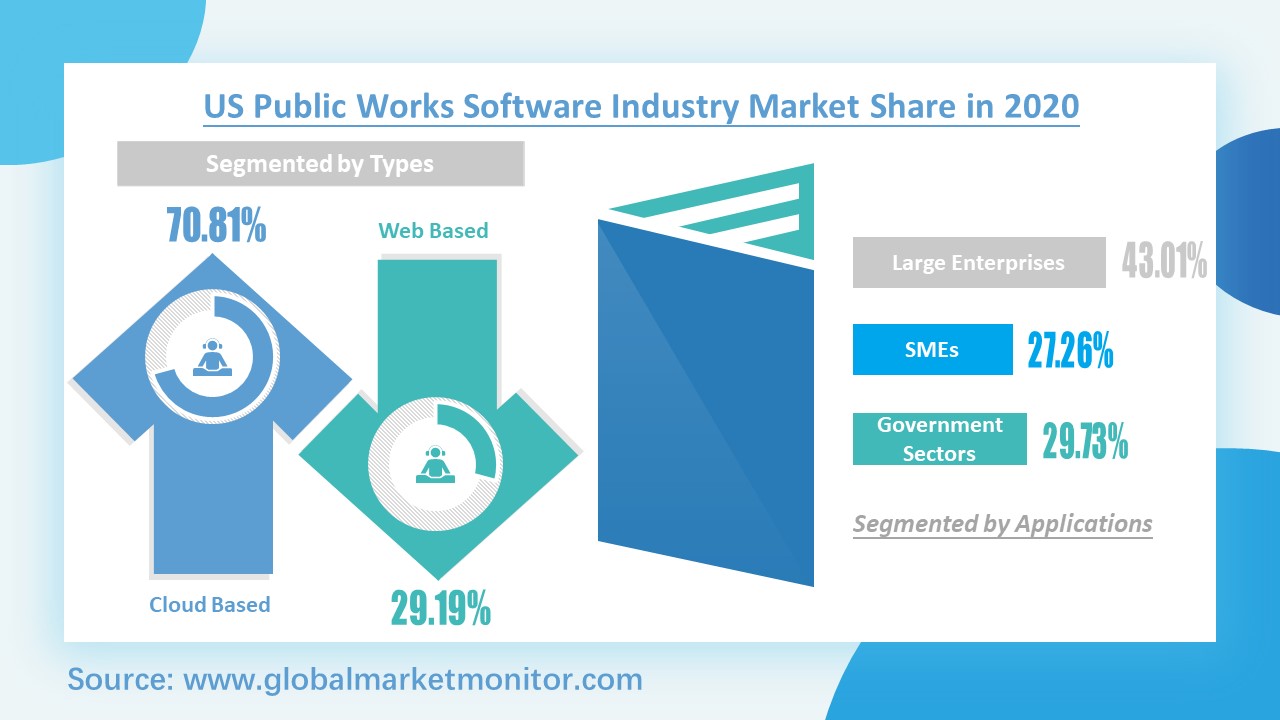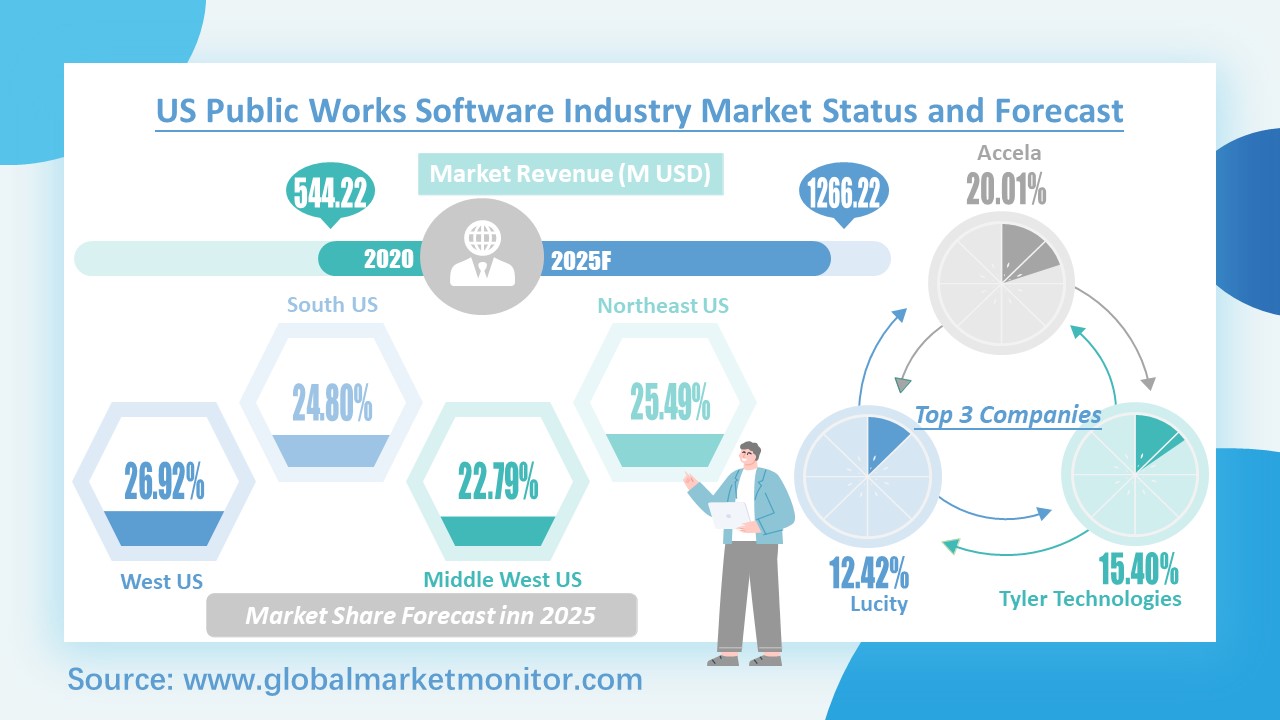Public
works software refers to software that is not copyrighted. It is a special case
of non-copylefted free software, meaning that some copies or modifications are
no longer free. Public works software helps oversee the organization\'s
management of public works data, assets, maintenance schedules, regulatory
compliance, labor and material costs, and more.

Public
works software can be divided into cloud - based software and network - based
software. Cloud-based public software is similar to a Web application that
accesses an online service over the Internet, but it never relies on a Web
browser to run, instead running on cloud data that can be operated in offline
mode. Web-based public software uses HTTP (Hyper Text Transfer Protocol) as its
primary communication Protocol and only operates when there is an active
Internet connection. In addition, such applications are primarily designed to
be accessed through a Web browser. Among
the two categories, cloud-based public software is widely used. In 2020, it
accounted for 70.81% of the market in the US public works software industry,
much higher than the market share of web-based public software.
In
terms of market share of each region, resources of the public engineering
software industry in the United States are evenly distributed, and there is no
centralized distribution in a certain region. The western region is the
industry\'s largest revenue market, with a market share of 27.29% in 2015 and a
slight decline to 26.99% in 2020. In 2020, the Northeast ranked second with
$139.79 million in market revenue, accounting for 25.69% of the market. In
addition, the Midwest will be the fastest-growing market in the industry, with
its market share expected to increase to 22.79% by 2025, while all other
regions will lose market share. The
middle east US owns Chicago, the third largest city and is located in the Great
Lakes region of North America. According to the data of the US Bureau of
Economic Analysis in 2018, the per capita PEC and economic development level of
the central and western regions are relatively high, which can provide a good
economic foundation for the development of the public works software
industry.
The
top three companies of U.S. public works software industry are Accela, Tyler
Technologies and Lucity, with the market shares of 20.01%, 15.40% and 12.42%,
respectively,in 2020.
In-depth research report on ${Public Works Software} market: https://www.globalmarketmonitor.com/reports/762770-public-works-software-market-report.html

Accela
provides a market-leading SaaS solution platform that enables state and local
governments to build thriving communities, attract and grow businesses, and
protect citizens. From planning, construction and licensing, to asset and
service request management, finance, environmental health and more, the SaaS of Accela offerings level the playing field for small and medium governments and
enable small organizations to use the same software as large cities. Supported
by Microsoft Azure, its open and flexible technology can help
organizations address specific needs today, while ensuring they are prepared
for any emerging or complex challenges in the future.And its solutions serve
more than 80% of the largest metropolitan areas in the United States.
Tyler
Technologies, a leading provider of End-To-End information
management solutions and services for local governments, works with customers
to empower the public sector -- cities, counties, schools and other government
entities -- to be more efficient, convenient and responsive to the needs of
their constituents. Supporting the enterprise asset and maintenance management
needs of hundreds of municipalities and thousands of users across the country.
Lucity
provides enterprise asset and maintenance management services to hundreds of
municipalities and thousands of users across the country, providing integrated,
flexible and scalable GIS and web-enabled Office-To-Mobile software
solutions for local governments and public works.
According
to our research, the market value of the US public works software industry was
$222.29 million in 2015 and grew to $544.22 million by 2020. Based on this, we
did a series of functional calculations and derived the data for the next five
years with a scientific model. Finally, we predict that the market value of the
US public works software industry will reach $1.27billion by 2025. From 2020 to
2025, the US public works software industry market will grow at a CAGR of
18.40%. The industry will develop rapidly during the forecast period.
Digital Twin Model Brings Development Opportunity to Public
Works Software Industry
The
digital Twin model aims to build a new collaborative digital workflow that
better serves planners, engineers, and urban stakeholders in public works,
utilities, asset management, and development. For example, digital urban
planning can use digital twin models to achieve more efficient city and
regional operations. Digital Twin Model Cloud services fully integrate the
digital environment, digital components and information of the digital age to
provide an intuitive, immersive 4D environment, creating a continuously updated
digital twin model of the infrastructure for the entire life cycle of the
asset. For infrastructure professionals, the 4D digital twin model can
effectively facilitate the development of BIM and GIS.
In-depth research report on ${Public Works Software} market: https://www.globalmarketmonitor.com/reports/762770-public-works-software-market-report.html
We provide more professional and intelligent market reports to complement your business decisions.